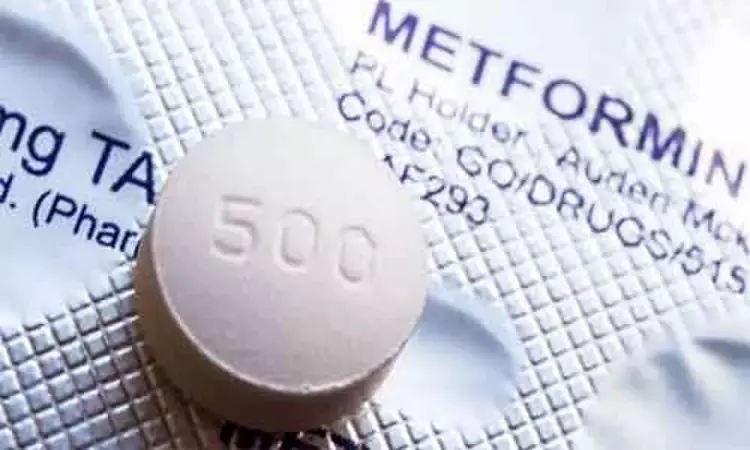- Home
- Medical news & Guidelines
- Anesthesiology
- Cardiology and CTVS
- Critical Care
- Dentistry
- Dermatology
- Diabetes and Endocrinology
- ENT
- Gastroenterology
- Medicine
- Nephrology
- Neurology
- Obstretics-Gynaecology
- Oncology
- Ophthalmology
- Orthopaedics
- Pediatrics-Neonatology
- Psychiatry
- Pulmonology
- Radiology
- Surgery
- Urology
- Laboratory Medicine
- Diet
- Nursing
- Paramedical
- Physiotherapy
- Health news
- Fact Check
- Bone Health Fact Check
- Brain Health Fact Check
- Cancer Related Fact Check
- Child Care Fact Check
- Dental and oral health fact check
- Diabetes and metabolic health fact check
- Diet and Nutrition Fact Check
- Eye and ENT Care Fact Check
- Fitness fact check
- Gut health fact check
- Heart health fact check
- Kidney health fact check
- Medical education fact check
- Men's health fact check
- Respiratory fact check
- Skin and hair care fact check
- Vaccine and Immunization fact check
- Women's health fact check
- AYUSH
- State News
- Andaman and Nicobar Islands
- Andhra Pradesh
- Arunachal Pradesh
- Assam
- Bihar
- Chandigarh
- Chattisgarh
- Dadra and Nagar Haveli
- Daman and Diu
- Delhi
- Goa
- Gujarat
- Haryana
- Himachal Pradesh
- Jammu & Kashmir
- Jharkhand
- Karnataka
- Kerala
- Ladakh
- Lakshadweep
- Madhya Pradesh
- Maharashtra
- Manipur
- Meghalaya
- Mizoram
- Nagaland
- Odisha
- Puducherry
- Punjab
- Rajasthan
- Sikkim
- Tamil Nadu
- Telangana
- Tripura
- Uttar Pradesh
- Uttrakhand
- West Bengal
- Medical Education
- Industry
What ADA/EASD consensus guideline has to say about metformin for hyperglycemia management in type 2 diabetes

USA: Metformin has high effectiveness in lowering HbA1c, minimal risk of hypoglycemia when used as monotherapy, good safety profile, low cost, and weight neutrality with the potential for modest weight loss, according to a statement from a recently released consensus update. Due to these characteristics of metformin, metformin remains the agent of choice is most diabetics.
The consensus update on hyperglycemia management in type 2 diabetes was released by the American Diabetes Association (ADA) and the European Association for the Study of Diabetes (EASD). The statement was presented at the 58th EASD Annual Meeting in Stockholm, Sweden, and subsequently got published in the journals Diabetologia by EASD and Diabetes Care by ADA.
The consensus also cautioned against metformin use in people with an eGFR <30 ml/min per 1.73 m2 and suggests considering dose reduction when the eGFR is <45 ml/min per 1.73 m2. Further, the document stated that the use of metformin may lead to lower concentrations of serum vitamin B12 and worsening neuropathy symptoms; therefore, the authors recommend supplementation and periodic monitoring in case of deficiency, particularly in anemic patients or those with neuropathy.
It is suggested that in people with an established or high risk of cardiovascular disease (CVD), heart failure (HF), or chronic kidney disease (CKD), the decision for the use of SGLT2 inhibitors or GLP-1 receptor agonists with proven benefits should be independent of background metformin use.
About Metformin
Metformin, approved by the US FDA in 1994, is an antidiabetic agent used for the treatment of type 2 diabetes. It comes in both immediate-release and extended-release and is used alone or with other medications, including insulin for treating type 2 diabetes -- a condition in which the body fails to use insulin normally and therefore cannot control the amount of sugar in the blood.
Also, metformin has various non-FDA-approved indications, including management of antipsychotic-induced weight gain, gestational diabetes, treatment and prevention of polycystic ovary syndrome (PCOS), and diabetes prevention. Currently, metformin is the only antidiabetic recommended by the ADA for prediabetes. It is also being studied for its potential anticancer, antiaging, and neuroprotective effects.
Metformin belongs to a class of drugs called biguanides; it reduces blood glucose levels by decreasing the production of glucose in the liver, increasing insulin sensitivity, and decreasing intestinal absorption. The antidiabetic drug lowers both basal and postprandial blood glucose levels.
Metformin is an oral medication dose typically from 500 to 2550 mg per day and given with a meal to decrease gastrointestinal (GI) upset. The daily dose is titrated weekly in increments of 500 mg or 850 mg. It is suggested to take metformin at the same time every day. Extended-release tablets are taken once daily with an evening meal and should be ingested with a full glass of water.
Dr Kamal Kant Kohli-MBBS, DTCD- a chest specialist with more than 30 years of practice and a flair for writing clinical articles, Dr Kamal Kant Kohli joined Medical Dialogues as a Chief Editor of Medical News. Besides writing articles, as an editor, he proofreads and verifies all the medical content published on Medical Dialogues including those coming from journals, studies,medical conferences,guidelines etc. Email: drkohli@medicaldialogues.in. Contact no. 011-43720751


